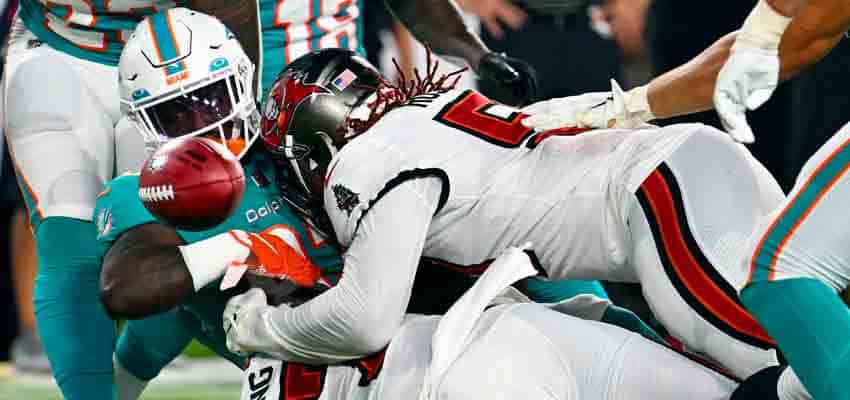If you recall, domestic sports betting in Florida was legal back in 2021. However, action was halted after just a few weeks. That’s because the reworked Florida-Seminole gambling compact allowing sports betting at the latter’s various FL properties was found lacking in District Court.
And even though the federal DC Court of Appeals eventually overturned the decision to overturn the compact, the compact’s sports betting allowance – which includes mobile online sports betting – still remains the subject of other legal challenges.
Since these might not be resolved before the start of the 2023 NFL and NCAA football seasons, there’s a good chance that Floridians will have to wait until sometime in 2024 to bet sports using domestic, licensed sports betting apps.
The current lawsuit – or, at least, the biggest current lawsuit (there are always numerous lawsuits whenever gambling is expanded in any state, not just in Florida) – was brought by West Flagler Associates.
West Flagler, a commercial (i.e. non-tribal) casino operator – claims that the aforementioned compact violates federal law because the mobile aspect allows wagers to be placed from anywhere in the state, not just the tribal lands where the Seminole have a statewide gambling monopoly.
The play by West Flagler, of course, is not to keep FL sports betting banned from FL casinos.
Instead, it’s to give commercial operators a foot in the door to challenge the Seminole stranglehold on “all” gaming in the state. In other words, West Flagler is arguing that they should be allowed to conduct sports gambling operations in Florida despite the Seminole gambling compact that grants the tribe exclusive access to betting in general.
Usually, such arguments attempt to classify sports betting as not covered under Class III tribal gaming guidelines.
Clearly, looking at precedents set by states such as Arizona (where tribes are authorized to host statewide mobile sports betting even though casino gambling is limited to tribal land), it’s unlikely that West Flagler has much of a case here. Still, we can’t blame them for trying.
But as lifelong Florida residents ourselves, we can tell you this: The Seminole Tribe is not going to allow domestic FL sports betting at all if it isn’t allowed to control the entire market. That’s the simple reality. All or nothing. The Hard Rock Sportsbook or bust.
See, the Seminole don’t need sports betting.
After all, from a casino operator’s perspective, sports betting by itself isn’t a particularly reliable, safe, or attractive proposition. It is the only gambling market where the house can reliably lose as easily as it can reliably win, and one bad beat can plunge an entire casino sportsbook into the red for the quarter or even the whole year.
Remember when Tiger Woods came out of nowhere to win his last Masters? That little stunt cost sportsbooks across America tens of millions of dollars. Some smaller operators in Las Vegas even went out of business because Tiger’s back decided to come out of early retirement that weekend.
For casinos – particularly for tribal casinos with statewide gambling exclusivity deals – the utility of sports betting is that the activity drives traffic to the gaming floor. Nothing more, nothing less.
This is true even for commercial casinos in huge markets like Las Vegas, Atlantic City, Biloxi, Philadelphia, and so on. These operators want you to bet on sports, and they’ll take 4-5% percent if they can. But when you win, casinos expect you to parlay at least some of your winnings – which amounts to a lot more than their aggregate losses – into bets at the slots, blackjack tables, roulette wheels, etc.
Casinos are happy to lose a little money if they make it all back (and then some) on the casino floor.
Realistically, as a gambler, you’re way more likely to win a sports bet – even if you flip a coin – than you are to win at the slots or tables. And psychologically, when someone wins a sports wager, that’s “found money” that said someone can much more easily part with on a much riskier gamble.
It’s also why brands like DraftKings and FanDuel, who made the natural leap from DFS to sports betting, are making the equally natural leap from sports betting to mobile casino gambling.
To be clear, even when sports betting is finally relaunched in the Sunshine State, Florida gamblers shouldn’t expect mobile casino games to follow suit. While we think that state gambling laws will eventually be passed and authorized by referendum to allow for such, it’s going to be years until domestic access is available.
The good news, of course, is that all of this – and we mean all of this – is completely academic.
If you want to bet on the Seminoles right now (the FSU team, not the FL casino magnate), you can. And if you want to play legal online casino games for real money right now, you can do that, too.
Remember, Florida gambling laws are restricted to Florida gambling operators. The same goes for US gambling laws. As such, you can sign up with reputable international online casinos – most of which have full online sportsbooks – today.
Our Florida online casino reviews point you toward the best, most respected, and most reputable gambling sites where you’re just a quick credit or crypto deposit away from real online betting.
We’ll keep you updated on developments with legal Florida sports betting, but don’t let the legislative process and all the summary red tape keep you in the red.
Source: Axios Miami

